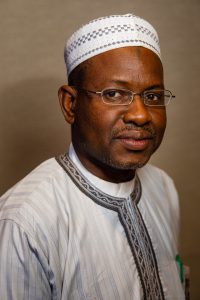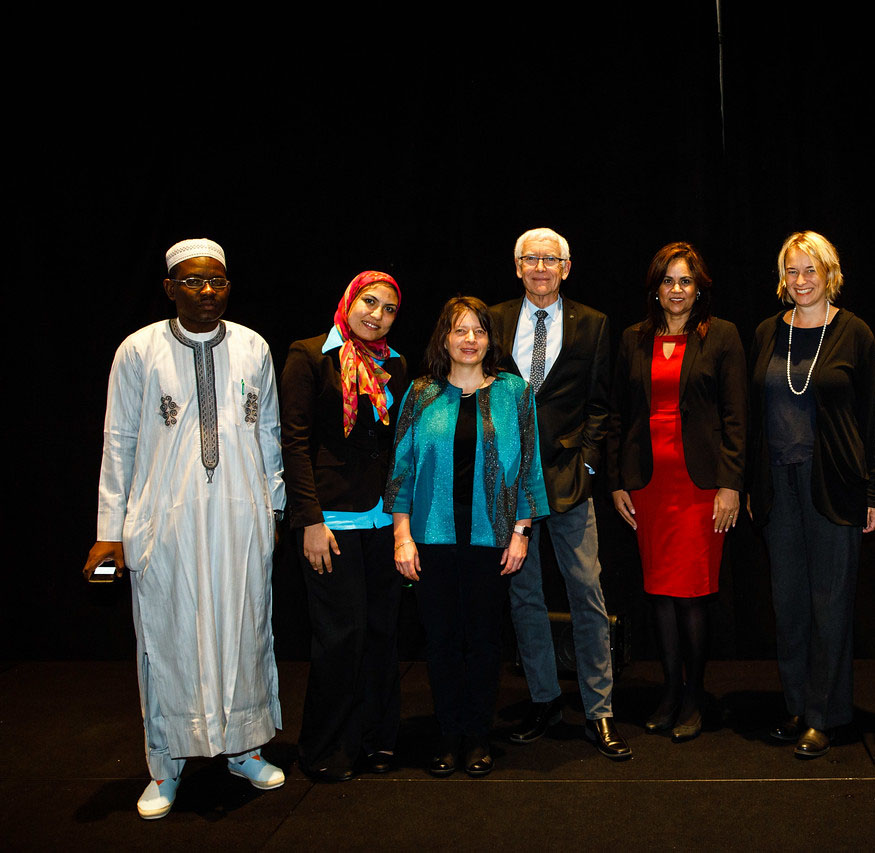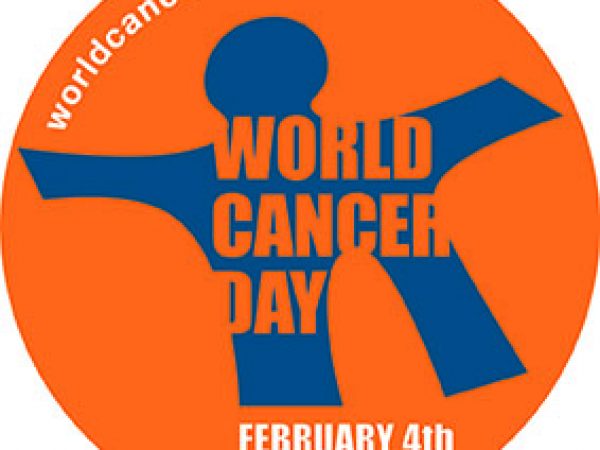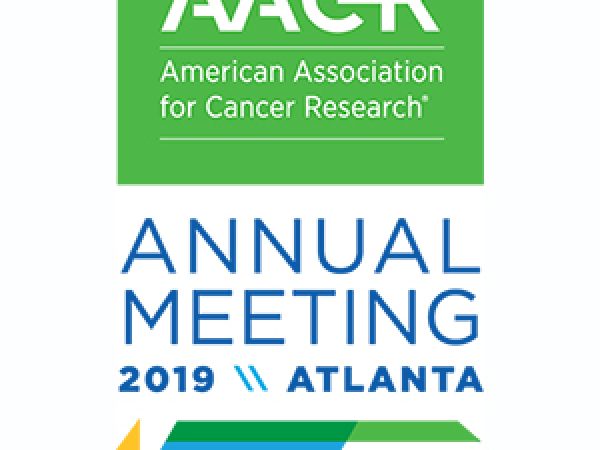Expanding Hope for Cancer Research in Africa
Mubarak Labaran Liman has overcome the death of his father and a scarcity of resources to develop a thriving career in his native Nigeria, studying the role of African ethnomedicine in the management, prevention, and control of cancer and diabetes.
Liman is one of five recipients of the 2017 AACR African Cancer Researchers Travel Awards (ACRTA). These travel awards provide financial assistance to meritorious early-career African cancer researchers who wish to attend and present their research at the American Association for Cancer Research (AACR) Annual Meeting in the United States. Intended to enhance the education and training of African researchers engaged in all fields of cancer research, the ACRTA are also designed to encourage cross-cultural collaborations and learning.
“Receiving this award is an honor for me and for my whole family,” says Liman, who presented his work on the potential of African sweet detar, a plant used in West African cooking, to prevent colon cancer.
Liman said the Annual Meeting has exposed him to a whole new world of cancer research, expanding his hopes for the field and for conducting future research that has a real impact in Africa. He was particularly thankful for the opportunity to meet many scientists he had previously cited in his articles. “It’s also made me realize how much I don’t know and that I need training on more advanced techniques,” he said. For this reason, he is seeking postdoctoral training in the U.S. and additional opportunities to collaborate with others.
Liman’s scientific career has been shaped by hard work, a commitment to family, and a strong interest in African ethnomedicine. The fourth child of six, Liman was the first and only one in his family to pursue post-secondary education, an endeavor that his family members supported.
Just this year, Liman, age 39, earned his PhD in biochemistry, cancer prevention, and phytotherapeutics research from Ahmadu Bello University Zaria, a federal research university in Zaria, Nigeria. It took him nine years to complete his MSc and PhD because Liman has been simultaneously working as an instructor and research fellow at Nuhu Bamalli Polytechnic Zaria. He has no scholarship for his study and relies on his basic salary and support from family members. He also runs a small waste paper, metals, and plastics recyclables collection venture, which helps him earn extra income to fund his research.
Liman’s research focuses on how the antioxidant properties of some African plants could potentially be used to fight colon cancer. He was first introduced to the role of antioxidants in disease prevention in his undergraduate days, when he studied the antioxidant properties of carotenoids.
“When my father was diagnosed with diabetes, he used a lot of alternative medicines because he had poor access to western medications. That informed my knowledge about local plants used ethnomedicinally. I read up widely on diabetes and ethnomedicine, medicinal plants, and alternative treatments to help my father with his treatments,” he said. Sadly, he lost his father to diabetes within nine years of diagnosis.
Liman continued his studies despite the fact that his father had been his “vital sponsor.” As he pursued his master’s degree, at Professor Sunday E. Atawodi’s Laboratory at Ahmadu Bello University Zaria, they analyzed and screened over 70 African food and medicinal plants for their antioxidant potential. In his doctoral work, he became more focused on cancer research, especially the prevention of colon cancer with food and plant products. Atawodi remains a treasured mentor.
Liman is enthusiastic about his homeland, noting that “Africa is a beautiful place for cancer research.” However, the country presents challenges for a young investigator, namely, “lack of resources and basic facilities.” Once, he recounts, he had to wait three months to access the only Enzyme-linked Immunosorbent Assay (ELISA) machine at a local laboratory that is used by multiple faculties, including the university hospital. The machine was broken and, when it was finally repaired, there was a long queue to use it.
Financial resources are also limited as most policy funding in Africa has focused on infectious diseases, even though it has been projected that by the year 2030, cancer and other non-communicable diseases may surpass infectious diseases as the leading cause of death on the African continent.
Liman believes there are numerous questions to be answered in African cancer research.
“I am puzzled why African-Americans are more predisposed to colon cancer than native Africans,” he said. “Rates of colon cancer are very low in Africa, particularly western Africa, which is the root of much African-American ancestry. Is it because of lack of screening, or diet and lifestyle changes, and/or genetics and epigenetics?” He is also interested in how the slave trade might have affected culture and long-term health of African natives.
Inspired by what he has seen and learned at the Annual Meeting, Liman hopes to conduct future population studies that will make a real impact in Africa, generating data that encourages foreign support and investment in Africa-led research. He feels that developing cancer research capacity in Africa is critically important as it has the potential to not only improve the health of Africans, but also to inform the field of cancer science on a global scale.
The AACR is proud to foster opportunities and provide inspiration for the next generation of cancer scientists, like Liman. Established in 2016, the AACR African Cancer Researchers Travel Awards have already supported the attendance of talented investigators from Egypt, Morocco, Nigeria, Senegal, and South Africa to the Annual Meeting. The AACR encourages applications from early-career investigators across the African continent and hopes that the dynamic platform the Annual Meeting offers will continue to inspire lifesaving research. More information is available on our website.





